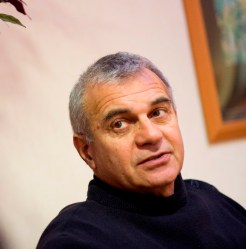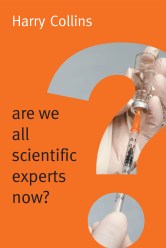This episode of Inquiring Minds, a podcast hosted by neuroscientist and musician Indre Viskontas and best-selling author Chris Mooney, also features a discussion of the scientifically problematic exclusion of the elderly from clinical trials for new drugs, and a bizarre viral spoof article claiming that solar panels are draining the sun’s energy (seriously).
To catch future shows right when they are released, subscribe to Inquiring Minds via iTunes or RSS. We are also available on Stitcher and on Swell. You can follow the show on Twitter at @inquiringshow and like us on Facebook. Inquiring Minds was also recently singled out as one of the “Best of 2013” on iTunes — you can learn more here.
Remember “Climategate”? It was the 2009 non-scandal scandal in which a trove of climate scientists’ emails, pilfered from the University of East Anglia in the U.K., were used to call all of modern climate research into question. Why? Largely because a cursory reading of those emails — showing, for example, climate scientists frankly discussing how to respond to burdensome data requests and attacks on their work — revealed a side of researchers that most people aren’t really used to seeing. Suddenly, these “experts” looked more like ordinary human beings who speak their minds, who sometimes have emotions and rivalries with one another, and (shocker) don’t really like people who question the validity of their knowledge.
In other words, Climategate demonstrated something that sociologists of science have know for some time — that scientists are mortals, just like all the rest of us. “What was being exposed was not something special and local but ‘business as usual’ across the whole scientific world,” writes Cardiff University scholar Harry Collins, one of the original founders of the field of “science studies,” in his masterful new book, Are We All Scientific Experts Now? But that means that Climategate didn’t undermine the case for human-caused global warming at all, says Collins. Rather, it demonstrated why it is so hard for ordinary citizens to understand what is going on inside the scientific community — much less to snipe and criticize it from the outside. They simply don’t grasp how researchers work on a day-to-day basis, or what kind of shared knowledge exists within the group.
That’s a case that Collins makes not only about the climate issue, but also to rebut vaccine deniers, HIV-AIDS skeptics, and all manner of scientific cranks and mavericks. All of them, he argues, are failing to understand what’s so important and powerful about a group of experts coming to a scientific consensus. “If we devalue scientific attitudes and scientific values, we’re going to find ourselves living in an unpleasant society,” explains Collins on the latest episode of the Inquiring Minds podcast.
Defenses of scientific expertise have been published before — but the source of this particular defense is what is likely to surprise a lot of people. There was a time, after all, when people like Collins — sociologists, anthropologists, historians, and other scholars studying science itself — were deemed to be researchers’ worst enemies, rather than their staunchest defenders. The so-called “science wars” between these two camps peaked with the 1996 “Sokal Hoax,” in which one NYU physicist, Alan Sokal, got so fed up with so-called “postmodern” critics of scientific knowledge that he spoofed them by submitting a gibberish-laden article, entitled “Transgressing the Boundaries: Towards a Transformative Hermeneutics of Quantum Gravity,” to one of their own journals. The paper got published, to Sokal’s delight.

Harry Collins.
For hard scientists like Sokal, science studies scholars were wrongly asserting that since it occurs in a cultural context and is heavily influenced by many non-scientific factors (the gender and race of researchers, for instance), science doesn’t really have any special claim to objective knowledge. Rather, scientific expertise was deemed to be just as contingent, just as sociologically determined, as anyone else’s belief system.
That’s why it’s so significant to find Collins, in his new book, laying out a robust defense of scientific expertise and arguing, as he puts it, that “scientists are a special group of people … in terms of the values that drive their lives and their aspirations in respect of how they live their lives.”
That’s not to say that Collins thinks the sociological study of science, which he and his colleagues pioneered, was a worthless endeavor. Coming out of the 1950s heyday, he argues, scientists were treated as almost mythic luminaries and geniuses who couldn’t be questioned. And that just wasn’t accurate. “What we were doing was saying things like, ‘Let’s get away from the mythological picture of science, the myth of what goes on in the lab, and let’s go and talk to scientists,'” explains Collins.
In Collins’ case, he embedded for over a decade with the community of gravitational wave physicists, becoming so familiar with their culture that he was actually able, in an experiment, to trick expert physicists into thinking he was really one of them. Through such careful investigations, Collins and his colleagues were able to debunk a variety of myths about science, including the idea that it is full of instantaneous strokes of genius or “Eureka moments” — as well as the myth that scientists always follow the data where it leads, rather than clinging to older but established paradigms in the face of new evidence. A book that played a major role in kicking off the science studies wave, after all, was Thomas Kuhn’s 1962 classic The Structure of Scientific Revolutions, which showed how older communities of scientists initially resisted new knowledge, from the Copernican revolution all the way to the Einsteinian one.
The upshot is that while the scientific process works in the long run, in the shorter term it is very messy — full of foibles, errors, confusions, and personalities.
So it’s not that Collins now repudiates his older research. He just thinks some scholars took it all too far, winding up in radically postmodernist positions that really did seem to devalue expertise and scientific knowledge. “It just seemed to me that we were moving into a position where, at least in the narrow academic world of my colleagues, it was ceasing to be possible to talk about experts,” says Collins. “If you said, ‘So and so is an expert,’ you were accused of being an elitist.”
Collins’ new book is, in essence, a thorough answer to this objection. Based in significant part on the so-called “Periodic Table of Expertises” that he and his colleagues at Cardiff developed, Collins carefully delineates between different types of claims to knowledge. And in the process, he rescues the idea that there’s something very special about being a member of an expert, scientific community, which cannot be duplicated by people like vaccine critic Jenny McCarthy, who told Time magazine in 2009 that “I do believe sadly it’s going to take some diseases coming back to realize that we need to change and develop vaccines that are safe.” And why would McCarthy think, in the face of scientific consensus, that the current ones aren’t? Well, she once remarked that she began her autism research at the “University of Google.”
Read all the online stuff you want, Collins argues — or even read the professional scientific literature from the perspective of an outsider or amateur. You’ll absorb a lot of information, but you’ll still never have what he terms “interactional expertise,” which is the sort of expertise developed by getting to know a community of scientists intimately, and getting a feeling for what they think.
“If you get your information only from the journals, you can’t tell whether a paper is being taken seriously by the scientific community or not,” says Collins. “You cannot get a good picture of what is going on in science from the literature,” he continues. And of course, biased and ideological internet commentaries on that literature are more dangerous still.
That’s why we can’t listen to climate change skeptics or creationists. It’s why vaccine deniers don’t have a leg to stand on. And, in a somewhat older example, that’s why what happened in South Africa, when president Thabo Mbeki rejected the scientific consensus on what causes HIV-AIDS and opted to base government policies on the views of a few scientific outliers, is so troubling.
To justify the decision not to distribute anti-retroviral AIDS drugs, says Collins, Mbeki “told his parliamentary colleagues to read the internet, and they’d see that there was a controversy about the safety of anti-retroviral drugs. There was no controversy. There was a controversy on the internet, but there was no controversy in mainstream science any longer. It had long, long, long passed its sell-by date.” Interactional scientific expertise, says Collins, is what allows you to know that — and if you don’t have it, you are really not in any position to call into question mainstream knowledge.
The same goes for Climategate. For instance, one of the most attacked emails was one that was simply misunderstood by its attackers. The email referred to “Mike’s Nature trick … to hide the decline,” and it was assumed on this basis that scientists were doing something underhanded to suppress the fact that temperatures were supposedly declining. But that’s just incorrect, as you would have known if you were part of the community of scientists doing the research. The “decline” being referred to wasn’t even about global temperatures at all, but rather, a decline in the growth of certain trees whose rings were being used to infer past temperatures.
“What the scientists meant by ‘trick’ was, ‘a neat trick’ — ‘Hey, that was a really good piece of science,'” explains Collins. “Whereas the public were interpreting it as something tricky, disreputable, and underhand. So you’ve got to know the context in order to interpret what the very words mean, and you can only know the context by once again, being part of the oral culture of science.”
And then, finally, there is the vaccine issue. Here, Collins is perhaps at his strongest. Once again, there are smatterings of science that vaccine skeptics can cite, most of all, the now-retracted 1998 Lancet study that ignited the modern anti-vaccine furor. But that doesn’t put them in a position to judge the state of scientific expertise about vaccines, or to call into question an existing consensus about their safety. And in this case, ignoring or attacking expertise can be downright deadly. “We still have the measles epidemic in this country,” says Collins, “which was the result of people rebelling against injecting their children with MMR, on the basis of what’s, again, a complete piece of scientific trash.”
So can Collins’ new book, and his notion of “interactional expertise,” help reunite two communities of scholars who have been at loggerheads for too long — scientists and those in the humanities who study them? Collins certainly hopes so.
“What I’m trying to do in the book is to find … a way of revaluing science,” says Collins, “of putting science back into the center of our society — but without rejecting all the great work that was done from the ’70s onward, and without going back to the mythical 1950’s picture of science.”
 This story was produced as part of the Climate Desk collaboration.
This story was produced as part of the Climate Desk collaboration.





